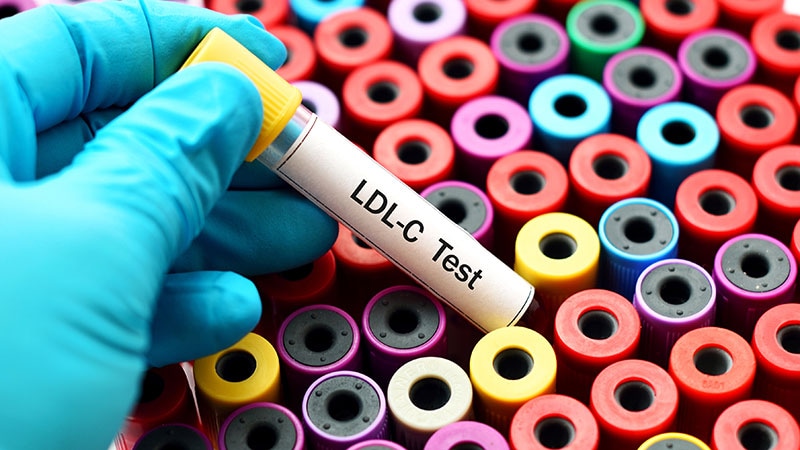ANGPTL3 siRNA Reduces LDL Cholesterol in HoFH Patients
Core Concepts
Novel ANGPTL3 siRNA therapy significantly reduces LDL cholesterol in HoFH patients.
Abstract
The content discusses the results of the phase 2 GATEWAY trial, presenting a novel drug, ARO-ANG3, that targets the production of ANGPTL3 to reduce LDL cholesterol levels in patients with homozygous familial hypercholesterolemia (HoFH). Key highlights include:
ARO-ANG3 is a hepatocyte-targeted siRNA that silences ANGPTL3 gene expression.
Reductions in LDL cholesterol levels by 48.1% and 44.0% were observed after 20 weeks with 200-mg and 300-mg doses, respectively.
The therapy showed few adverse events and no impact on liver function.
ARO-ANG3 is administered via subcutaneous injections every 3 months.
The drug is expected to complement existing lipid-lowering therapies.
Plans for a phase 3 study to further investigate ARO-ANG3 are underway.
ANGPTL3 is considered an emerging target in dyslipidemia treatment.
Different approaches, including monoclonal antibodies and gene silencing, are being explored to target ANGPTL3.
Safety concerns, particularly related to liver toxicity, are highlighted in the development of new compounds.
Steep LDL Cholesterol Reductions With ANGPTL3 siRNA in HoFH
Stats
The current interim analysis showed that after 20 weeks, LDL cholesterol levels decreased by 48.1% and 44.0%, respectively, in the two groups.
There was an 82.7% reduction with the 200-mg dose and an 80.1% reduction for patients given 300 mg of the drug.
Apolipoprotein B levels decreased by 39.2% from baseline with the 200-mg dose and by 34.5% in the 300-mg group.
Triglycerides fell by 38.8% and 28.3%, respectively.
Quotes
"If you look at the curves, they're going down, down, down." - Frederick J. Raal
Key Insights Distilled From
by Liam Davenpo... at www.medscape.com 06-01-2023
https://www.medscape.com/viewarticle/992630
Deeper Inquiries
How does the efficacy of ARO-ANG3 compare to other existing treatments for HoFH?
ARO-ANG3, a novel drug targeting the production of ANGPTL3, has shown promising efficacy in reducing LDL cholesterol levels in patients with homozygous familial hypercholesterolemia (HoFH). In the phase 2 GATEWAY trial, patients receiving ARO-ANG3 experienced a significant reduction in LDL cholesterol levels by 48.1% and 44.0% with 200 mg and 300 mg doses, respectively, after 20 weeks of treatment. These reductions are comparable to other existing treatments for HoFH, such as evinacumab, a monoclonal antibody targeting ANGPTL3, which has also shown efficacy in lowering lipid levels. ARO-ANG3's ability to achieve substantial LDL cholesterol reductions without significant adverse effects makes it a promising option for patients with HoFH.
What are the potential long-term effects of ANGPTL3 inhibition on lipid metabolism?
Inhibiting ANGPTL3, a protein involved in lipid metabolism, can have significant long-term effects on lipid levels and cardiovascular health. Loss-of-function variants of ANGPTL3 have been associated with increased lipase activity, leading to reduced lipid levels and a lower risk of atherosclerotic cardiovascular disease (ASCVD). By silencing the expression of the ANGPTL3 gene, drugs like ARO-ANG3 can lead to sustained reductions in LDL cholesterol, apolipoprotein B, and triglyceride levels. These effects on lipid metabolism may translate into long-term benefits for patients with dyslipidemia, potentially reducing the risk of cardiovascular events and improving overall cardiovascular outcomes.
How can the safety concerns related to liver toxicity in dyslipidemia treatments be effectively addressed?
Safety concerns related to liver toxicity in dyslipidemia treatments, particularly those targeting lipid metabolism proteins like ANGPTL3, need to be carefully addressed to ensure the overall safety and tolerability of the drugs. One approach to addressing these concerns is through rigorous monitoring of liver function tests during treatment to detect any signs of liver damage early on. Additionally, conducting thorough preclinical and clinical studies to assess the potential hepatotoxic effects of the drugs can help identify any safety issues before they become problematic. Collaborating with regulatory authorities to establish clear guidelines for monitoring and managing liver toxicity in patients receiving dyslipidemia treatments is essential. Developing alternative treatment options or dosing regimens that minimize the risk of liver toxicity while maintaining efficacy is also crucial in addressing safety concerns in dyslipidemia therapies.
0
More on Healthcare
